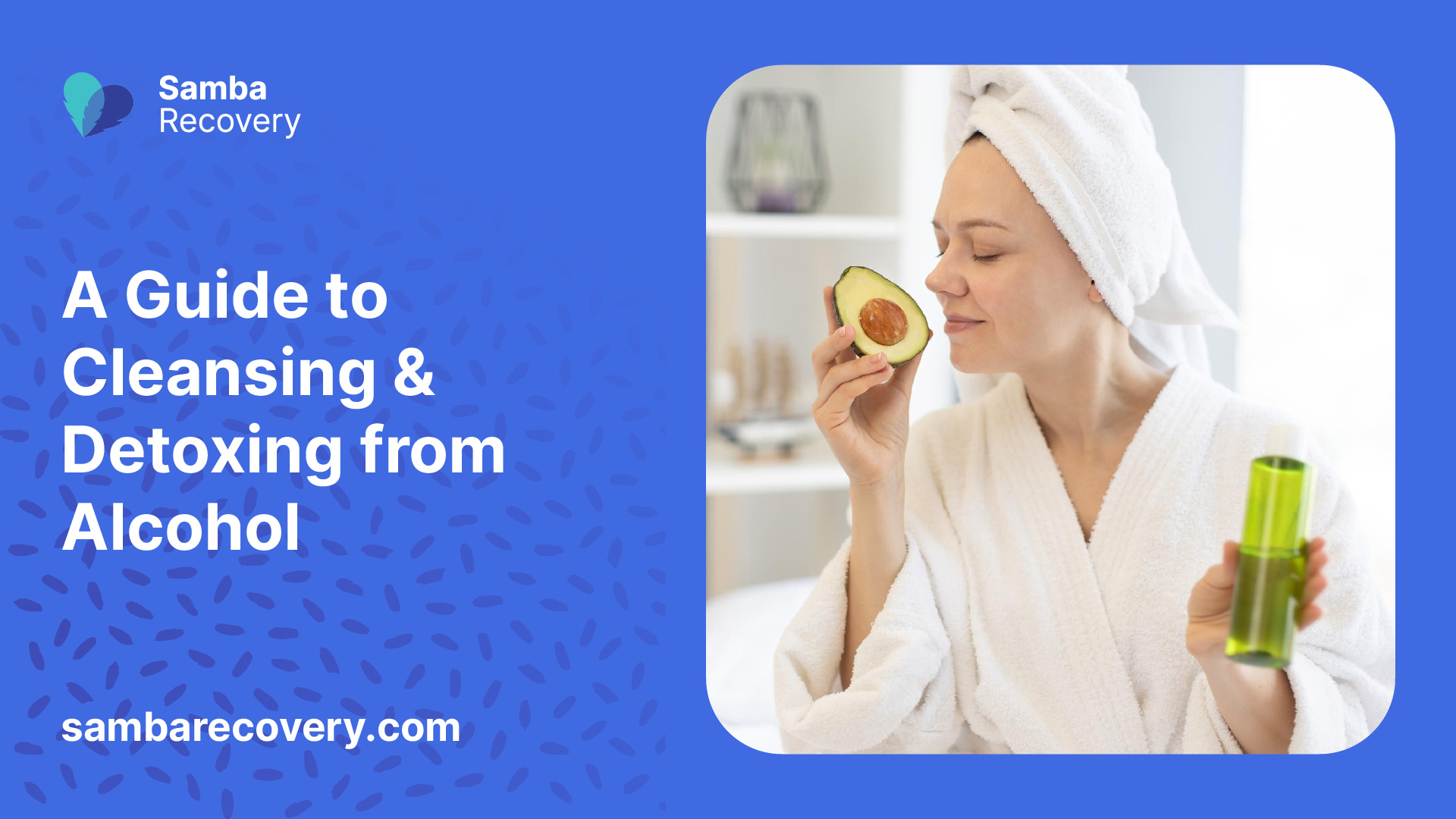
Understanding Alcohol-Related Liver Damage
To comprehend the importance of liver cleansing and detoxification, it is crucial to understand the impact of alcohol on the liver and the stages of alcohol-related liver damage.
Impact of Alcohol on the Liver
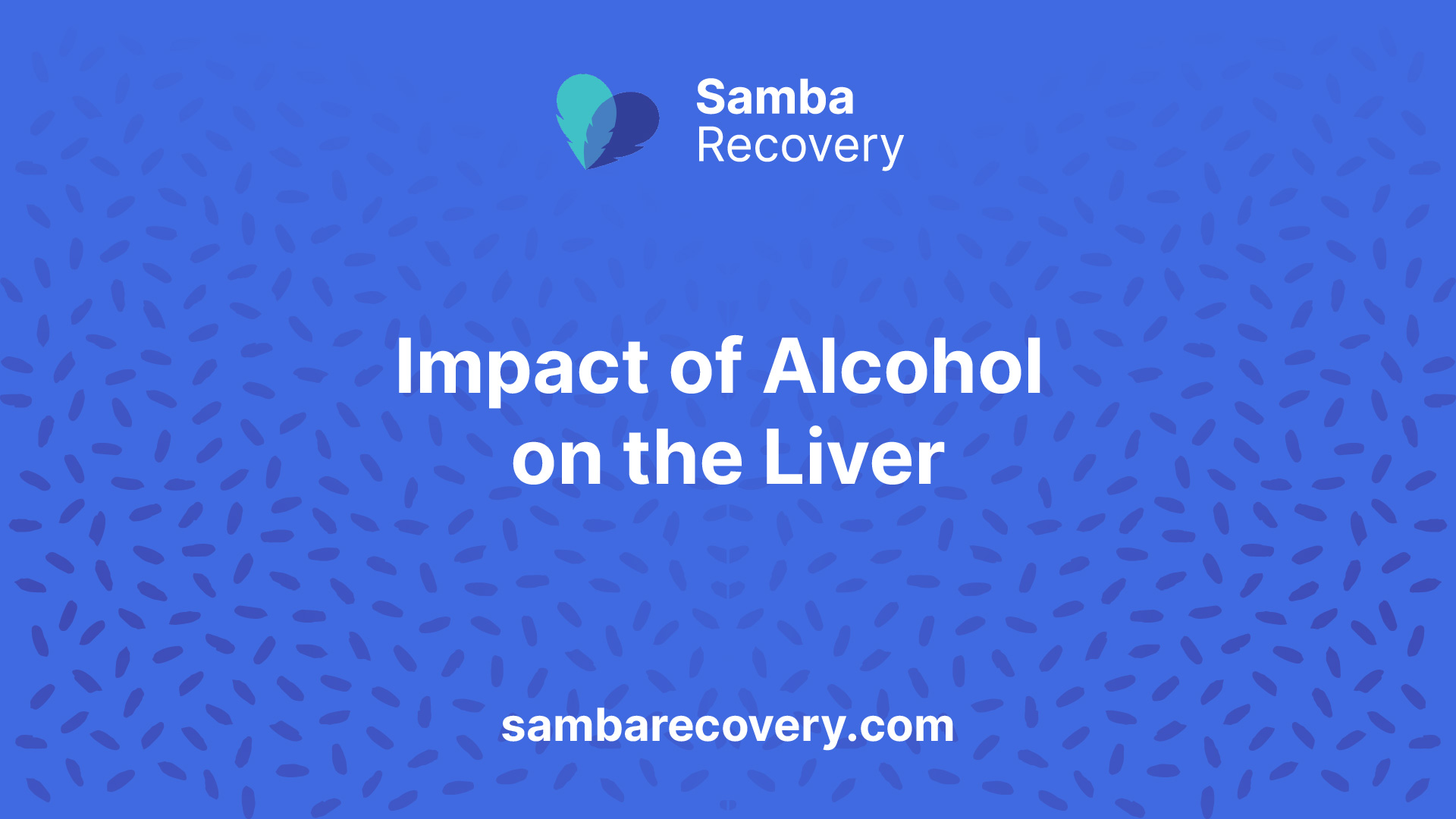
The liver plays a vital role in metabolizing alcohol, converting it into acetaldehyde, a toxic substance that can cause cellular damage. Excessive alcohol consumption can have a profound impact on the liver, leading to various liver conditions such as fatty liver disease, alcoholic hepatitis, and cirrhosis. These conditions result from the continuous exposure of the liver to alcohol and its byproducts.
Alcohol-related liver damage occurs as a result of inflammation in the liver. This inflammation can progress to alcoholic hepatitis, a condition characterized by liver cell damage and inflammation. In some cases, alcoholic hepatitis can further progress to cirrhosis, which involves irreversible scarring of liver tissue [1]. It’s important to note that the severity of alcohol-related liver damage can vary depending on factors such as the amount and duration of alcohol consumption, genetic predisposition, and overall health.
Stages of Alcohol-Related Liver Damage
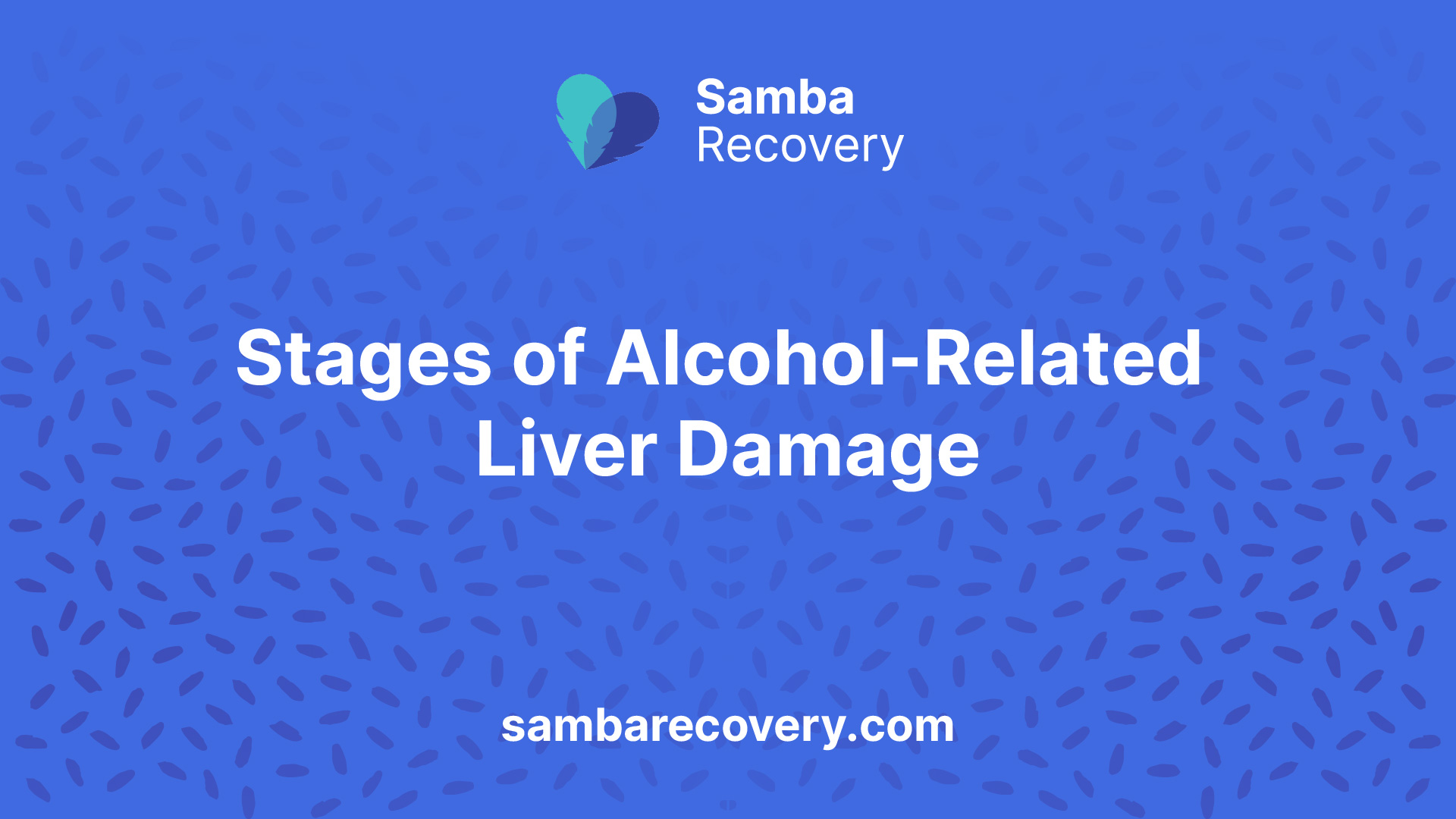
Alcohol-related liver damage typically occurs in stages, with varying levels of severity. These stages include:
- Alcoholic Fatty Liver Disease: Excessive alcohol consumption can disrupt the liver’s ability to break down fats, leading to the accumulation of fat in the liver cells. This condition is known as alcoholic fatty liver disease. In its early stages, alcoholic fatty liver disease is reversible if alcohol consumption is ceased. However, if alcohol abuse continues, the condition can progress to more severe liver damage [2].
- Alcoholic Hepatitis: Alcoholic hepatitis is characterized by inflammation of the liver and liver cell damage. It can occur as a result of prolonged alcohol abuse and heavy drinking. The symptoms of alcoholic hepatitis can range from mild to severe and may include fatigue, jaundice, abdominal pain, and liver enlargement. If left untreated, alcoholic hepatitis can progress to more severe liver damage [3].
- Cirrhosis: The most advanced stage of alcohol-related liver damage is cirrhosis. It involves the irreversible scarring of liver tissue, which disrupts the normal functioning of the liver. Cirrhosis can cause severe complications, such as liver failure, portal hypertension, and an increased risk of liver cancer. It is important to note that cirrhosis may not present symptoms until the liver is severely damaged [3].
Understanding the impact of alcohol on the liver and the stages of alcohol-related liver damage highlights the importance of liver cleansing and detoxification. By taking steps to support liver health and adopting a lifestyle that minimizes alcohol consumption, individuals can help protect their liver and potentially reverse early-stage liver damage.
Importance of Liver Cleansing
Taking care of your liver is crucial, especially if you have been consuming alcohol. Alcohol-related liver damage can occur due to inflammation in the liver, leading to conditions such as alcoholic hepatitis and cirrhosis with irreversible scarring of liver tissue. Excessive alcohol consumption can also disrupt the liver’s ability to break down fats, resulting in fatty liver disease.
Significance of Liver Detoxification
Liver detoxification plays a vital role in restoring and maintaining the health of the liver. The liver is responsible for metabolizing and eliminating toxins from the body. After alcohol consumption, the liver has to work harder to process and eliminate the alcohol and its byproducts. This increased workload can place stress on the liver and potentially lead to liver damage.
Proper hydration is essential for liver health, particularly after alcohol consumption. Alcohol metabolism can lead to dehydration, which places additional stress on the liver. Adequate hydration helps flush out toxins from the liver and aids in the transportation of nutrients for repair and regeneration [1]. Be sure to drink enough water throughout the day to support your liver’s detoxification process.
Recovery Process After Alcohol Consumption
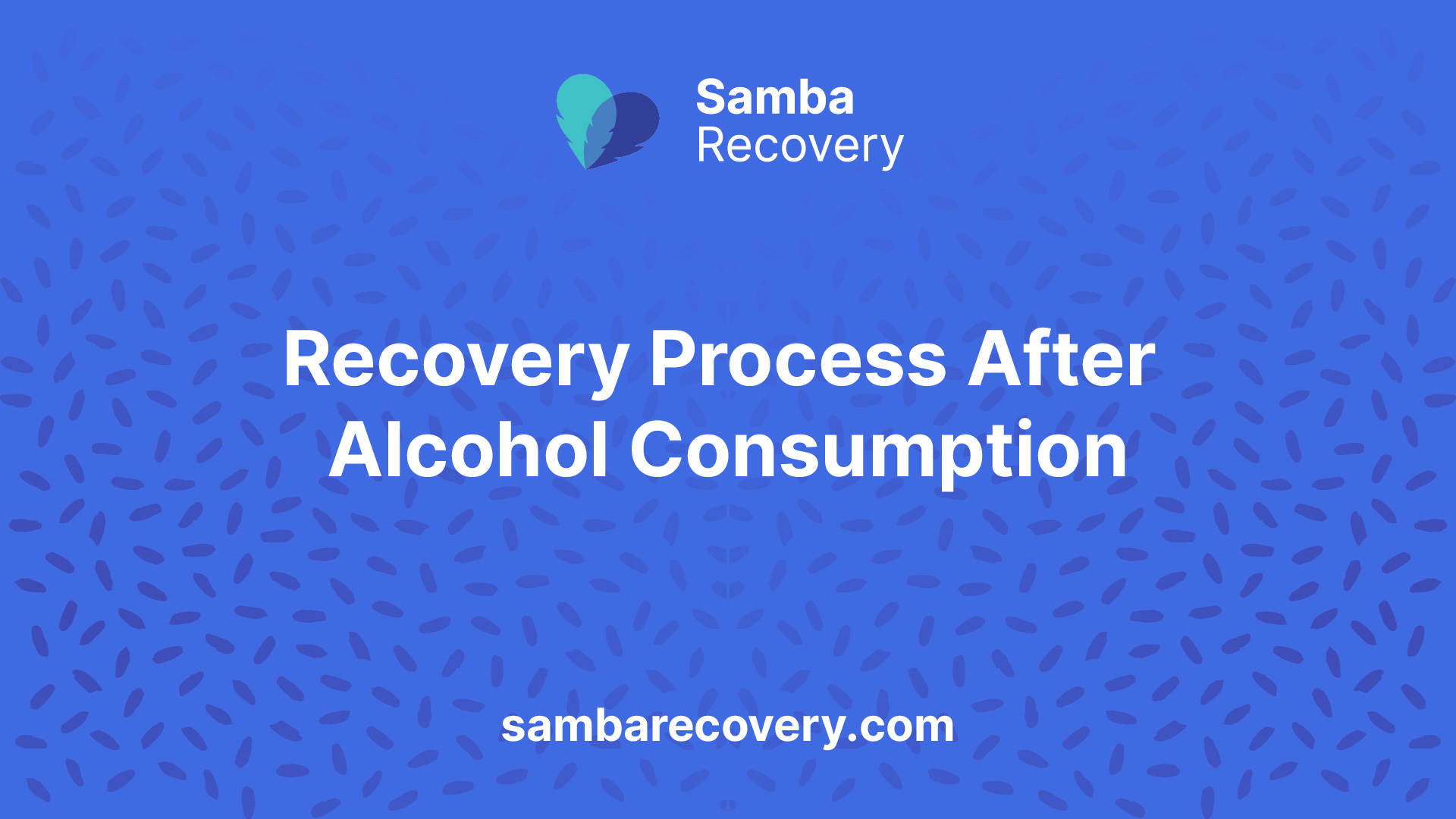
After consuming alcohol, the liver goes through a recovery process to heal any damage caused. The liver has the ability to heal minor damage within days or weeks, while severe damage may take months or even be permanent. It is recommended to give the liver a break by abstaining from alcohol for at least two consecutive days each week. This allows the liver to rest and recover from the stress of alcohol metabolism. By implementing alcohol-free days, you give your liver the opportunity to repair and regenerate, promoting better liver health.
To support the recovery process, it is important to adopt a healthy lifestyle. This includes maintaining a balanced diet, exercising regularly, getting enough sleep, and managing stress. These lifestyle factors can help reduce the burden on the liver and support its natural detoxification processes. Additionally, implementing a liver-friendly diet can further aid in the recovery and detoxification process. For more information on liver-friendly foods and beverages, refer to our section on Liver-Friendly Foods for Detoxification.
While implementing lifestyle changes and adopting a liver-friendly diet can have a positive impact on liver health, it is crucial to note that severe liver damage may require medical intervention. Seeking professional help from healthcare providers who specialize in liver health is important for proper diagnosis, treatment, and guidance [5]. They can provide personalized recommendations based on your specific situation and help you develop a comprehensive plan to cleanse and detoxify your liver effectively.
By understanding the significance of liver detoxification and supporting the recovery process after alcohol consumption, you can take meaningful steps towards reclaiming your liver’s health. Remember to prioritize hydration, adopt a healthy lifestyle, and seek professional help when needed to ensure the best outcomes for your liver health.
Strategies for Liver Cleansing
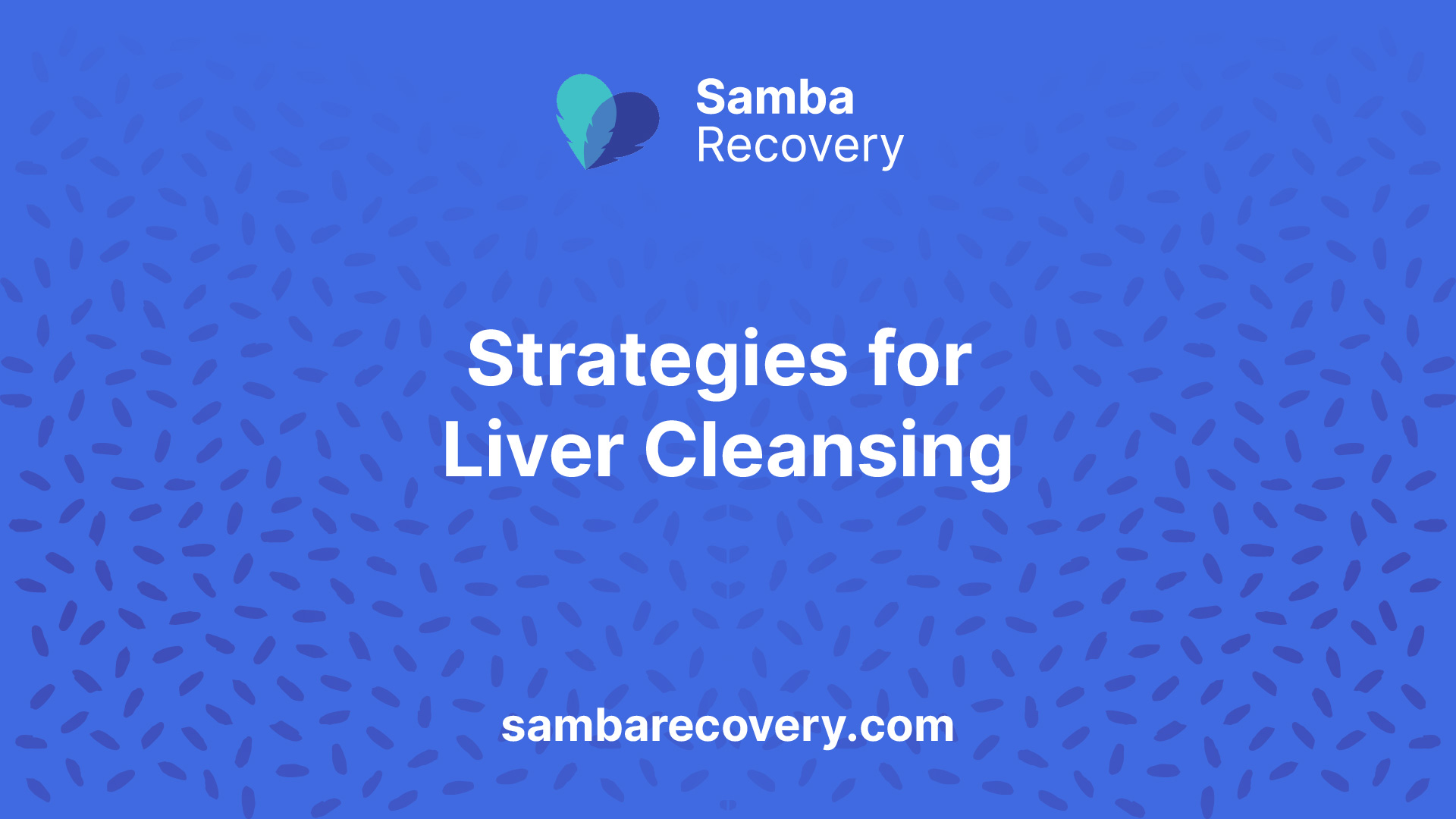
When it comes to cleansing and detoxifying the liver from the effects of alcohol, there are several strategies that can be beneficial. Two key approaches include prioritizing hydration for liver health and incorporating liver-friendly foods into your diet.
Hydration for Liver Health
Proper hydration is essential for liver health, especially after alcohol consumption. Alcohol metabolism can lead to dehydration, placing additional stress on the liver. Adequate hydration helps flush out toxins from the liver and aids in the transportation of nutrients for repair and regeneration.
To support your liver, it’s important to drink enough water throughout the day. Aim for at least 8 glasses (64 ounces) of water daily. You can also include other hydrating beverages, such as herbal teas or infused water, to increase your overall fluid intake. Remember that alcohol itself is dehydrating, so it’s crucial to replenish your body with water to support your liver’s natural detoxification processes.
Liver-Friendly Foods for Detoxification
Incorporating liver-friendly foods into your diet can play a significant role in supporting liver health and aiding in the detoxification process. These foods are rich in vitamins, minerals, antioxidants, and beneficial compounds that promote liver function and help eliminate toxins from the body [1].
Consider including the following liver-friendly foods in your diet:
- Green leafy vegetables: Spinach, kale, and arugula are excellent sources of antioxidants and chlorophyll, which help neutralize and eliminate toxins.
- Cruciferous vegetables: Broccoli, cauliflower, and Brussels sprouts contain compounds that support liver detoxification enzymes.
- Citrus fruits: Lemons, oranges, and grapefruits are high in vitamin C, which stimulates the production of liver detoxification enzymes.
- Garlic and onions: These sulfur-rich foods activate liver enzymes that aid in toxin removal.
- Turmeric: This spice contains curcumin, which has potent anti-inflammatory and antioxidant properties that support liver health.
- Berries: Blueberries, raspberries, and strawberries are rich in antioxidants that protect the liver from oxidative stress.
It’s also important to avoid or minimize foods that stress the liver, such as processed foods, high-sugar foods, and excessive amounts of saturated fats. By making dietary changes and incorporating liver-friendly foods, you can provide essential nutrients and support your liver’s detoxification processes.
Remember, before incorporating any supplements or making significant changes to your diet, it’s essential to consult with a healthcare professional for personalized guidance and recommendations. They can help determine the most appropriate approach for your specific needs and ensure your liver cleansing journey is safe and effective.
Debunking Liver Detox Myths
When it comes to liver health, there are numerous myths and misconceptions surrounding the concept of liver detoxification. It’s important to separate fact from fiction to make informed decisions about the best approaches for maintaining liver health. In this section, we will debunk some common myths associated with liver detox programs and highlight the potential risks involved.
Effectiveness of Liver Detox Programs
Liver detox programs or supplements are often marketed as a way to remove toxins from the body and improve overall health. However, it’s important to note that these programs lack scientific proof of their effectiveness in achieving these claims [4]. While individuals may feel better after completing a liver detox program, this improvement is often attributed to the elimination of highly processed foods that contain solid fats and processed sugars.
There is no evidence to suggest that liver detox programs aid in eliminating toxins from the body after consuming excessive amounts of unhealthy food or alcohol. Moreover, liver detox programs do not treat existing liver damage or prevent liver disease. It’s important to understand that lifestyle changes, such as modifying one’s diet and making environmental adjustments, play a more significant role in promoting liver health and preventing liver disease [4].
Risks Associated with Liver Detoxes
Liver detox programs are not recommended for daily health maintenance or as a remedy for overindulgence. These programs lack regulation, uniformity, and adequate testing in clinical trials, making it difficult to determine their safety and efficacy. While certain ingredients used in liver detox programs, such as milk thistle and turmeric extract, have shown positive results, there is insufficient clinical trial data to recommend their routine use for prevention [6].
It’s important to approach liver cleanses with caution, as some dietary supplements marketed as liver detoxification products can actually harm the liver. These products may contain ingredients that can interact with medications or have adverse effects on liver function. Therefore, it’s crucial to consult with a healthcare professional before embarking on any liver detox program to ensure its safety and suitability for your specific health needs [6].
In summary, liver detox programs are not scientifically proven to remove toxins from the body or improve overall health. They are not essential for liver function improvement, and there is no evidence to suggest they aid in toxin elimination after consuming excessive unhealthy food or alcohol. It’s important to prioritize lifestyle changes, such as adopting a healthy diet and making environmental adjustments, for promoting liver health. Before considering any liver detox program or supplement, it’s advisable to consult with a healthcare professional to ensure its safety and efficacy for your individual circumstances.
Natural Approaches to Liver Detoxification
When it comes to detoxifying the liver from the effects of alcohol, natural approaches can play a significant role in supporting liver health and promoting the detoxification process. This section will explore two key aspects of natural liver detoxification: beneficial foods and beverages, and lifestyle changes.
Beneficial Foods and Beverages
Incorporating liver-friendly foods into your diet can provide essential nutrients that support liver health and aid in the detoxification process. These foods are typically rich in vitamins, minerals, antioxidants, and beneficial compounds that promote overall liver well-being. On the other hand, it is important to avoid certain foods that may stress the liver.
Here are some beneficial foods and beverages that can aid in liver detoxification:
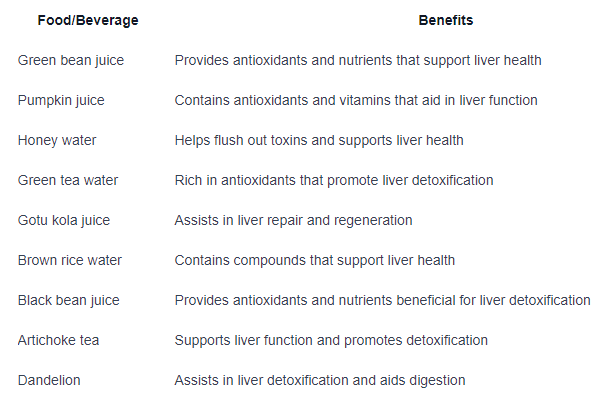
Remember to consult with a healthcare professional before making any significant changes to your diet or incorporating new foods or beverages into your routine.
Lifestyle Changes for Liver Health
In addition to dietary modifications, lifestyle changes can also contribute to liver health and support the detoxification process. Here are some lifestyle changes that can help in liver detoxification:
- Hydration: Proper hydration is essential for liver health, especially after alcohol consumption. Alcohol metabolism can lead to dehydration, placing additional stress on the liver. Adequate hydration helps flush out toxins from the liver and aids in the transportation of nutrients for repair and regeneration. Make sure to drink enough water throughout the day to maintain optimal hydration levels.
- Exercise: Regular physical activity can stimulate blood circulation and promote liver health. Engaging in moderate-intensity exercises, such as walking, jogging, or cycling, can help improve liver function and aid in the detoxification process.
- Sleep: Sufficient sleep is crucial for overall health, including liver health. During sleep, the body undergoes various restorative processes, including liver regeneration. Aim for 7-8 hours of quality sleep each night to support optimal liver function.
- Sauna Therapy: Saunas can help promote detoxification by inducing sweating, which assists in eliminating toxins from the body. However, it’s important to consult with a healthcare professional before incorporating sauna therapy, especially if you have any underlying health conditions.
- Dietary Changes: Along with incorporating liver-friendly foods, adopting a balanced and nutritious diet can provide essential building blocks for liver restoration. The Mediterranean diet, which emphasizes fruits, vegetables, whole grains, lean proteins, and healthy fats, is known to benefit liver function. Additionally, foods like tea, fish, nuts, and other nutrient-dense ingredients can support liver health.
While natural approaches can be beneficial for liver detoxification, it’s important to note that severe liver damage may require medical intervention. If you have concerns about your liver health or are experiencing symptoms related to alcohol misuse, it’s crucial to seek professional help. Consult with a healthcare provider or consider rehab programs, such as those offered by Alcoholics Anonymous, for support and guidance.
By incorporating beneficial foods and beverages into your diet and making positive lifestyle changes, you can support your liver’s natural detoxification process and promote overall liver health. Remember to always consult with a healthcare professional before making any significant changes to your diet or lifestyle, especially if you have pre-existing medical conditions.
Seeking Professional Help
When it comes to cleansing and detoxing the liver from alcohol, seeking professional help is essential for a safe and effective recovery process. Medical guidance and rehab programs can provide the necessary support and resources to overcome alcohol misuse disorders and promote long-term sobriety.
Importance of Medical Guidance
Professional medical guidance is crucial during the detoxification process from alcohol. This supervision ensures that potentially dangerous withdrawal symptoms are monitored and managed effectively. Withdrawal symptoms can vary in severity and may include tremors, nausea, anxiety, and even seizures. Having medical professionals oversee the detox process helps ensure the safety and well-being of individuals undergoing alcohol detox.
Moreover, seeking medical guidance allows individuals to receive personalized care and treatment plans tailored to their specific needs. Healthcare professionals can assess the individual’s overall health and address any underlying medical conditions that may complicate the detoxification process. They can also provide guidance on how to manage triggers and develop healthy coping mechanisms to prevent relapse.
Rehab Programs for Alcohol Misuse
Rehabilitation programs provide structured environments and evidence-based therapies to help individuals overcome alcohol misuse disorders. These programs aim to address the physical, psychological, and emotional aspects of addiction. By participating in a rehab program, individuals can benefit from a supportive community, professional counseling, and a range of therapeutic interventions.
Rehab programs for alcohol misuse often offer various levels of care to cater to individual needs. Some common options include:
- Outpatient Programs: These programs allow individuals to receive treatment while living at home and maintaining daily responsibilities. Outpatient programs typically involve regular therapy sessions, education, and support groups.
- Intensive Outpatient Programs (IOPs): IOPs provide a more structured approach to treatment, with more frequent therapy sessions and group therapy. Individuals attending IOPs have the flexibility to live at home but with increased treatment hours.
- Partial Hospitalization Programs (PHPs): PHPs provide a higher level of care, with individuals attending treatment sessions during the day and returning home in the evenings. PHPs offer a structured and supportive environment for intensive therapy and recovery.
Rehab programs offer a comprehensive approach to recovery, addressing not only the physical aspects of alcohol detoxification but also the underlying psychological and emotional factors contributing to alcohol misuse. These programs provide a solid foundation for individuals seeking to cleanse and detox their liver from alcohol, helping them develop the necessary skills and strategies for long-term sobriety.
If you or someone you know is struggling with alcohol misuse, consider reaching out to a professional rehab facility, such as Owl’s Nest Recovery or Northstar Behavioral Health. These facilities offer various client-centered programs designed to support individuals on their journey toward recovery and provide the necessary guidance to cleanse and detox the liver from alcohol. Remember, seeking professional help is a crucial step towards reclaiming your liver’s health and overall well-being.
References
[1]: https://www.townsendla.com/blog/cleanse-detox-your-liver
[3]: https://canadiancentreforaddictions.org/signs-your-liver-is-healing-from-alcohol/
[4]: https://www.webmd.com/digestive-disorders/liver-detox
[5]: https://www.therecoveryvillage.com/alcohol-abuse/repair-liver-alcohol-use
[6]: https://www.hopkinsmedicine.org/health/wellness-and-prevention/detoxing-your-liver-fact-versus-fiction
[7]: https://health.clevelandclinic.org/detox-liver-from-alcohol
[8]: https://www.northstarbehavioralhealthmn.com/resources/how-to-cleanse-and-detox-your-liver-from-alcohol






